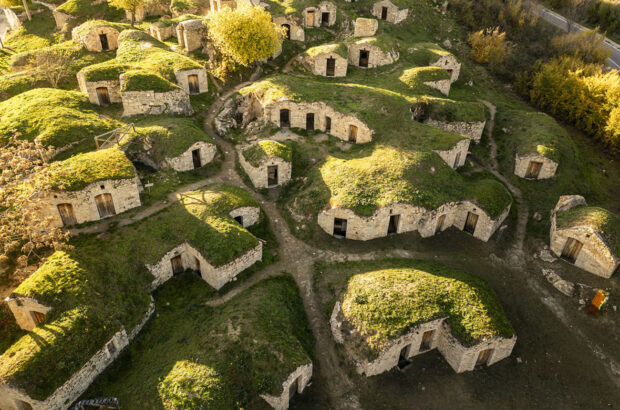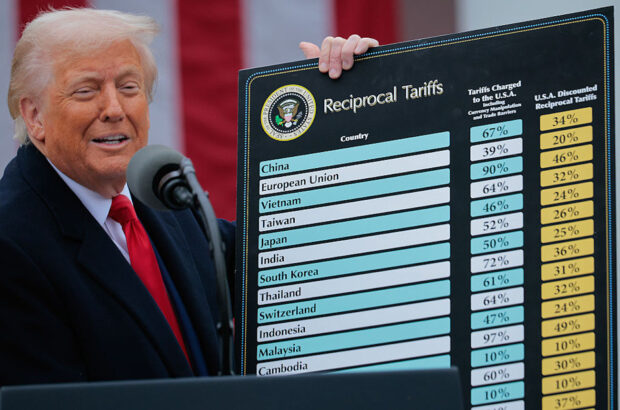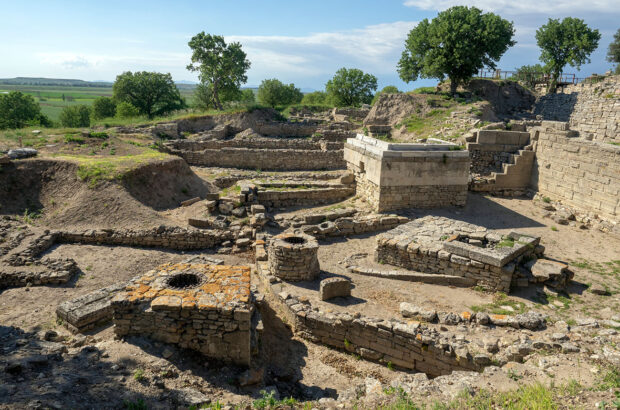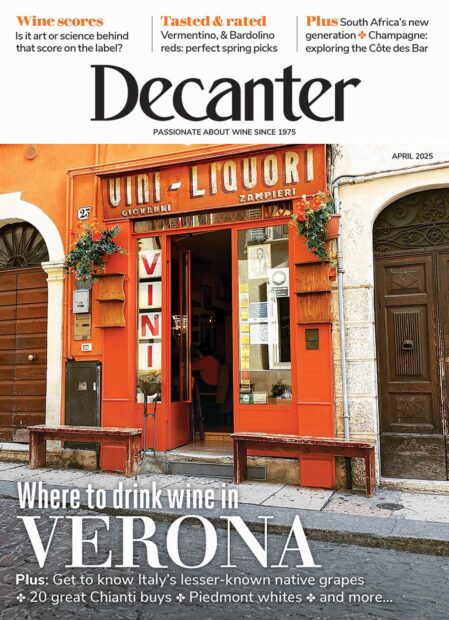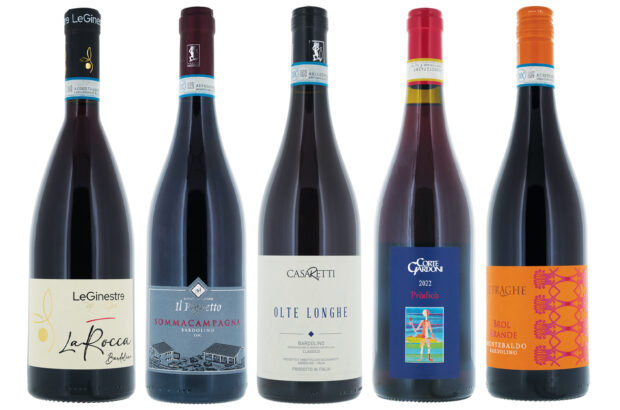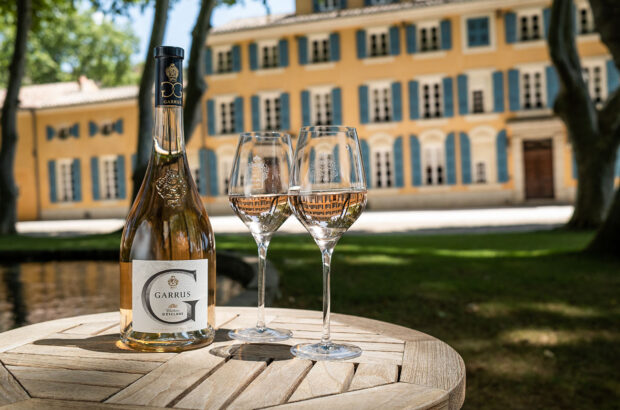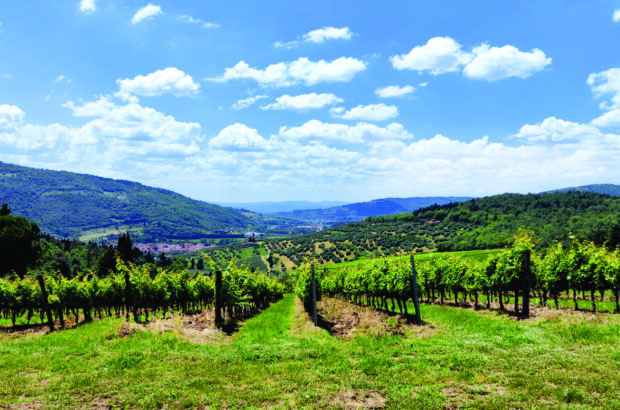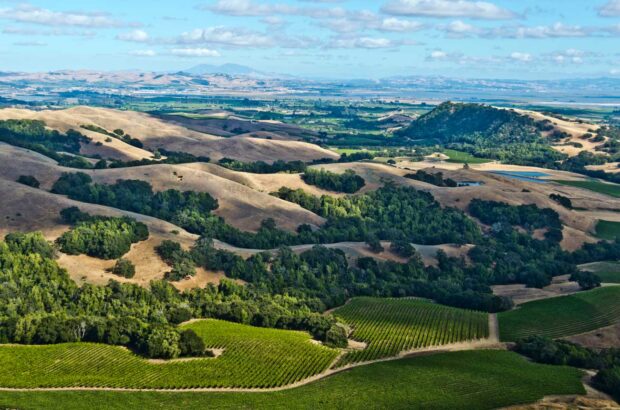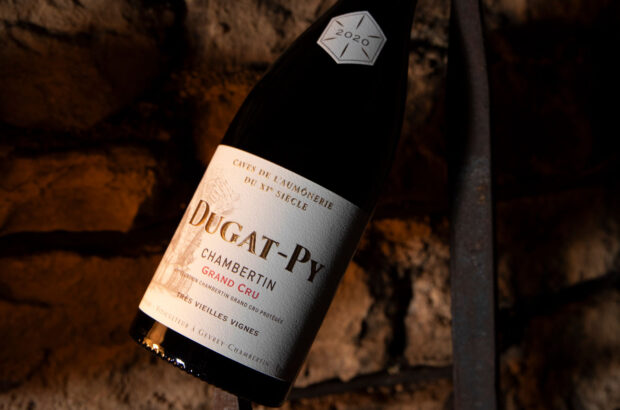Abrie Beeslaar has been winemaker at the iconic Kanonkop Estate in Stellenbosch for 23 years. His achievements during this time included making South Africa’s first ever 100-point wine. He will be stepping back from Kanonkop in November to focus on his own label, Beeslaar Wines, which he founded with his wife in 2011.
‘I’m leaving a great team behind at Kanonkop. The talent is there, the commitment, the love for the property and the brand – so that’s I think the most important thing. That’s also the same reason why we haven’t decided to appoint somebody outside the business; to keep that momentum going and keep that passion going. I think it was a positive decision.
‘It’s not that I said, “Listen, I want to go!” Because you don’t stay at a place for 23 years and not enjoy it. Kanonkop will always have a piece of my heart and I don’t think I will ever be not interested in what’s going on.
‘When I was young I wanted to do medicine and then I couldn’t get into medical school. They said go study agriculture for a year, then you can reapply. Then within my first year, I did a tasting course. I started to describe this wine and I lost myself a little. People were looking at me as if I was crazy. I realised if I could describe wine like this without any proper education, there must be something there. And that was the first time I really looked at winemaking as a career.
‘In South Africa we are all obsessed with fruit and it can be a bit negative to a certain extent, because as soon as people pick up that they’re drinking a South African wine there’s a certain association. I like to create a certain style that’s much more international – when you taste the wine you reckon it might be Burgundy, it doesn’t need to necessarily taste South African or even New World. I find that style to be respected much more widely through the world… you want to have the widest possible audience for your wine.
‘The environment that you’re in plays such a big role in enjoying a wine. We’ve had amazing times on the beach: we will cook crayfish right there on the beach with a glass of Sauvignon Blanc – and people will laugh if they hear me say Sauvignon Blanc because I don’t drink Sauvignon Blanc – but that just feels right for the occasion!
‘The reason for going is just that I needed to give myself room to grow my own wine. Kanonkop is becoming too big and is still growing aggressively so there wasn’t really room.
‘I love drinking the wines that we can’t produce in South Africa. The first thing that comes to mind is proper German Riesling. You know we can’t duplicate that!
‘Joy Division, the Pixies and that type of music was big in the years when I grew up and I still listen to it nowadays. When I drive my son to school and we want to get a bit worked up, we listen to Guns N’ Roses and AC/DC.
‘In my whole life at Kanonkop I have only worked with granite soils. So the expression of Pinotage [on granite] I knew exactly what it was. But then [at Beeslaar Wines] I started to work with a vineyard that had shale soils and with the shale, all of a sudden you had all this perfume and red fruit and beautiful expression of the varietal.
‘Pinotage and game go so well together. Especially if it’s a 10-year-old Pinotage, the black fruit has settled a little bit, it’s opening up, with some tomato cocktail notes coming out – that with some game is amazing. Kudu specifically I like and springbok we eat quite a bit of.
‘One of the biggest challenges we have in South Africa is that people still perceive South African wine as value for money. Before sanctions South Africa was much better aligned internationally price wise, but we got stuck for that amount of time: just selling locally, not having increasing prices, falling behind with the exchange rate. That’s really affected the positioning until today.
‘The main thing at Kanonkop is to keep the consistency of the style. Keep on refining but don’t change dramatically, just because you want to leave a thumbprint. One of the most important things when I started there was that they told me I didn’t have to win any competitions. So that allows you to make the wine you want to make – not what the market wants you to make.
‘At Beeslaar Wines I’ve got a long term relationship with the grower for the fruit. But I’m very involved with what’s going on in the vineyards. There’s a lot of new techniques that we are trying, especially to get the plants to get older. When I studied it was fierce with pruning and that had a negative effect on the longevity of the plant. So we’ve got some Italian consultants helping us to create a plant that can get older and also focus on what they call “live wood”. So it means that you have stronger shoots with more even bunches and consistency in your plant, which is fantastic.
‘From next year, I’ll probably do a second wine as well. It might be a lighter style Bordeaux blend, it might be a Cape Blend or it might be a straight Pinotage. I haven’t decided yet.’



